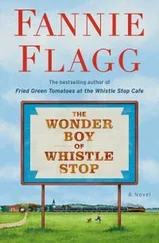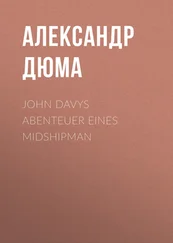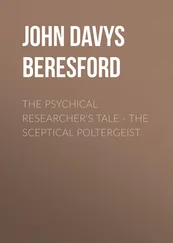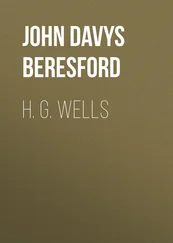John Davys Beresford - The Wonder
Здесь есть возможность читать онлайн «John Davys Beresford - The Wonder» — ознакомительный отрывок электронной книги совершенно бесплатно, а после прочтения отрывка купить полную версию. В некоторых случаях можно слушать аудио, скачать через торрент в формате fb2 и присутствует краткое содержание. Жанр: foreign_prose, foreign_antique, на английском языке. Описание произведения, (предисловие) а так же отзывы посетителей доступны на портале библиотеки ЛибКат.
- Название:The Wonder
- Автор:
- Жанр:
- Год:неизвестен
- ISBN:нет данных
- Рейтинг книги:3 / 5. Голосов: 1
-
Избранное:Добавить в избранное
- Отзывы:
-
Ваша оценка:
- 60
- 1
- 2
- 3
- 4
- 5
The Wonder: краткое содержание, описание и аннотация
Предлагаем к чтению аннотацию, описание, краткое содержание или предисловие (зависит от того, что написал сам автор книги «The Wonder»). Если вы не нашли необходимую информацию о книге — напишите в комментариях, мы постараемся отыскать её.
The Wonder — читать онлайн ознакомительный отрывок
Ниже представлен текст книги, разбитый по страницам. Система сохранения места последней прочитанной страницы, позволяет с удобством читать онлайн бесплатно книгу «The Wonder», без необходимости каждый раз заново искать на чём Вы остановились. Поставьте закладку, и сможете в любой момент перейти на страницу, на которой закончили чтение.
Интервал:
Закладка:
The confidence in question was Ginger's declared intention of becoming the father of the world's greatest bowler. Mrs. Stott was a dark, garrulous, rather deaf little woman, with a keen eye for the main chance; she might have become a successful woman of business if she had not been by nature both stingy and a cheat. When her son presented his determination, her first thought was to find some woman who would not dissipate her son's substance, and in her opinion—not expressed to Ginger—the advertised purpose of the contemplated marriage evidenced a wasteful disposition.
Mrs. Stott did not think of Ellen Mary as a possible daughter-in-law, but she did hold forth for an hour and three-quarters on the contemptible qualities of the young maidens, first of Ailesworth, and then with a wider swoop that was not justified by her limited experience, of the girls of England, Scotland, and Ireland at large.
It required the flexible reasoning powers of Ellen Mary to find a solution of the problem. Any ordinary, average woman of forty-two, a declared spinster of seven years' standing, who had lived all her life in a provincial town, would have been mentally unable to realise the possibilities of the situation. Such a representative of the decaying sexual instinct would have needed the stimulus of courtship, at the least of some hint of preference displayed by the suitor. Ruled by the conventions which hold her sex in bondage, she would have deemed it unwomanly to make advances by any means other than innuendo, the subtle suggestions which are the instruments of her sex, but which are often too delicate to pierce the understanding of the obtuse and slow-witted male.
Ellen Mary stood outside the ruck that determines the destinies of all such typical representatives. She considered the idea presented to her by Mrs. Stott with an open and mobile intelligence. She weighed the character of Ginger, the possibilities of rejection, and the influence of Mrs. Stott; and she gave no thought to the conventions, nor to the criticisms of Ailesworth society. When she had decided that such chances as she could calculate were in her favour, Ellen made up her mind, walked out to the County Ground one windy October forenoon, and discovered Ginger experimenting with grass seed in a shed off the pavilion.
In this shed she offered herself, while Ginger worked on, attentive but unresponsive. Perhaps she did not make an offer so much as state a case. A masterly case, without question; for who can doubt that Stott, however procrastinating and unwilling to make a definite overture, must already have had some type of womanhood in his mind; some conception, the seed of an ideal.
I find a quality of romance in this courageous and unusual wooing of Ellen Mary's; but more, I find evidences of the remarkable quality of her intelligence. In other circumstances the name of Ellen Mary Jakes might have stood for individual achievement; instead of that, she is remembered as a common woman who happened to be the mother of Victor Stott. But when the facts are examined, can we say that chance entered? If ever the birth of a child was deliberately designed by both parents, it was in the case under consideration. And in what a strange setting was the inception first displayed.
Ellen Mary, a gaunt, tall, somewhat untidy woman, stood at the narrow door of the little shed off the Ailesworth pavilion; with one hand, shoulder-high, she steadied herself against the door frame, with the other she continually pushed forward the rusty bonnet which had been loosened during her walk by the equinoctial gale that now tore at the door of the shed, and necessitated the employment of a wary foot to keep the door from slamming. With all these distractions she still made good her case, though she had to raise her voice above the multitudinous sounds of the wind, and though she had to address the unresponsive shoulders of a man who bent over shallow trays of earth set on a trestle table under the small and dirty window. It is heroic, but she had her reward in full measure. Presently her voice ceased, and she waited in silence for the answer that should decide her destiny. There was an interval broken only by the tireless passion of the wind, and then Ginger Stott, the best-known man in England, looked up and stared through the incrusted pane of glass before him at the dim vision of stooping grass and swaying hedge. Unconsciously his hand strayed to his pockets, and then he said in a low, thoughtful voice: "Well! I dunno why not."
II
Dr. O'Connell's face was white and drawn, and the redness of his eyelids more pronounced than ever as he faced Stott in the pale October dawn. He clutched at his beard with a nervous, combing movement, as he shook his head decidedly in answer to the question put to him.
"If it's not dead, now, 'twill be in very few hours," he said.
Stott was shaken by the feeble passion of a man who has spent many weary hours of suspense. His anger thrilled out in a feeble stream of hackneyed profanities.
O'Connell looked down on him with contempt. At sunrise, after a sleepless night, a man is a creature of unrealised emotions.
"Damn it, control yourself, man!" growled O'Connell, himself uncontrolled, "your wife'll pull through with care, though she'll never have another child." O'Connell did not understand; he was an Irishman, and no cricketer; he had been called in because he had a reputation for his skill in obstetrics.
Stott stared at him fiercely. The two men seemed as if about to grapple desperately for life in the windy, grey twilight.
O'Connell recovered his self-control first, and began again to claw nervously at his beard. "Don't be a fool," he said, "it's only what you could expect. Her first child, and her a woman of near fifty." He returned to the upstairs room; Stott seized his cap and went out into the chill world of sunrise.
"She'll do, if there are no complications," said O'Connell to the nurse, as he bent over the still, exhausted figure of Mrs. Stott. "She's a wonderful woman to have delivered such a child alive."
The nurse shivered, and avoiding any glance at the huddle that lay on an improvised sofa-bed, she said: "It can't live, can it?"
O'Connell, still intent on his first patient, shook his head. "Never cried after delivery," he muttered—"the worst sign." He was silent for a moment and then he added: "But, to be sure, it's a freak of some kind." His scientific curiosity led him to make a further investigation. He left the bed and began to examine the huddle on the sofa-couch. Victor Stott owed his life, in the first instance, to this scientific curiosity of O'Connell's.
The nurse, a capable, but sentimental woman, turned to the window and looked out at the watery trickle of feeble sunlight that now illumined the wilderness of Stott's garden.
"Nurse!" The imperative call startled her; she turned nervously.
"Yes, doctor?" she said, making no movement towards him.
"Come here!" O'Connell was kneeling by the sofa. "There seems to be complete paralysis of all the motor centres," he went on; "but the child's not dead. We'll try artificial respiration."
The nurse overcame her repugnance by a visible effort. "Is it … is it worth while?" she asked, regarding the flaccid, tumbled, wax-like thing, with its bloated, white globe of a skull. Every muscle of it was relaxed and limp, its eyes shut, its tiny jaw hanging. "Wouldn't it be better to let it die…?"
O'Connell did not seem to hear her. He waved an impatient hand for her assistance. "Outside my experience," he muttered, "no heart-beat discernible, no breath … yet it is indubitably alive." He depressed the soft, plastic ribs and gave the feeble heart a gentle squeeze.
"It's beating," he ejaculated, after a pause, with an ear close to the little chest, "but still no breath! Come!"
Читать дальшеИнтервал:
Закладка:
Похожие книги на «The Wonder»
Представляем Вашему вниманию похожие книги на «The Wonder» списком для выбора. Мы отобрали схожую по названию и смыслу литературу в надежде предоставить читателям больше вариантов отыскать новые, интересные, ещё непрочитанные произведения.
Обсуждение, отзывы о книге «The Wonder» и просто собственные мнения читателей. Оставьте ваши комментарии, напишите, что Вы думаете о произведении, его смысле или главных героях. Укажите что конкретно понравилось, а что нет, и почему Вы так считаете.












